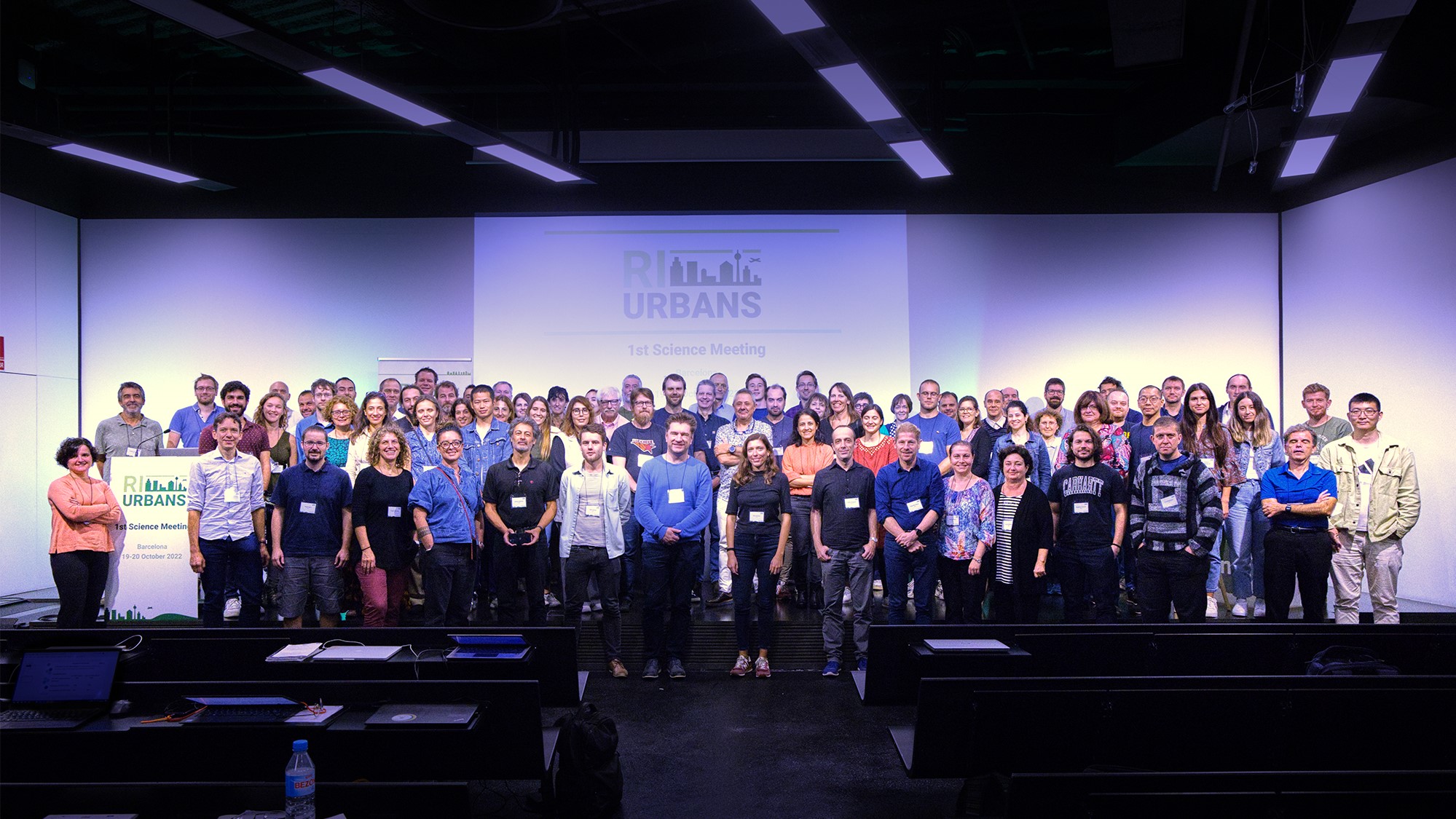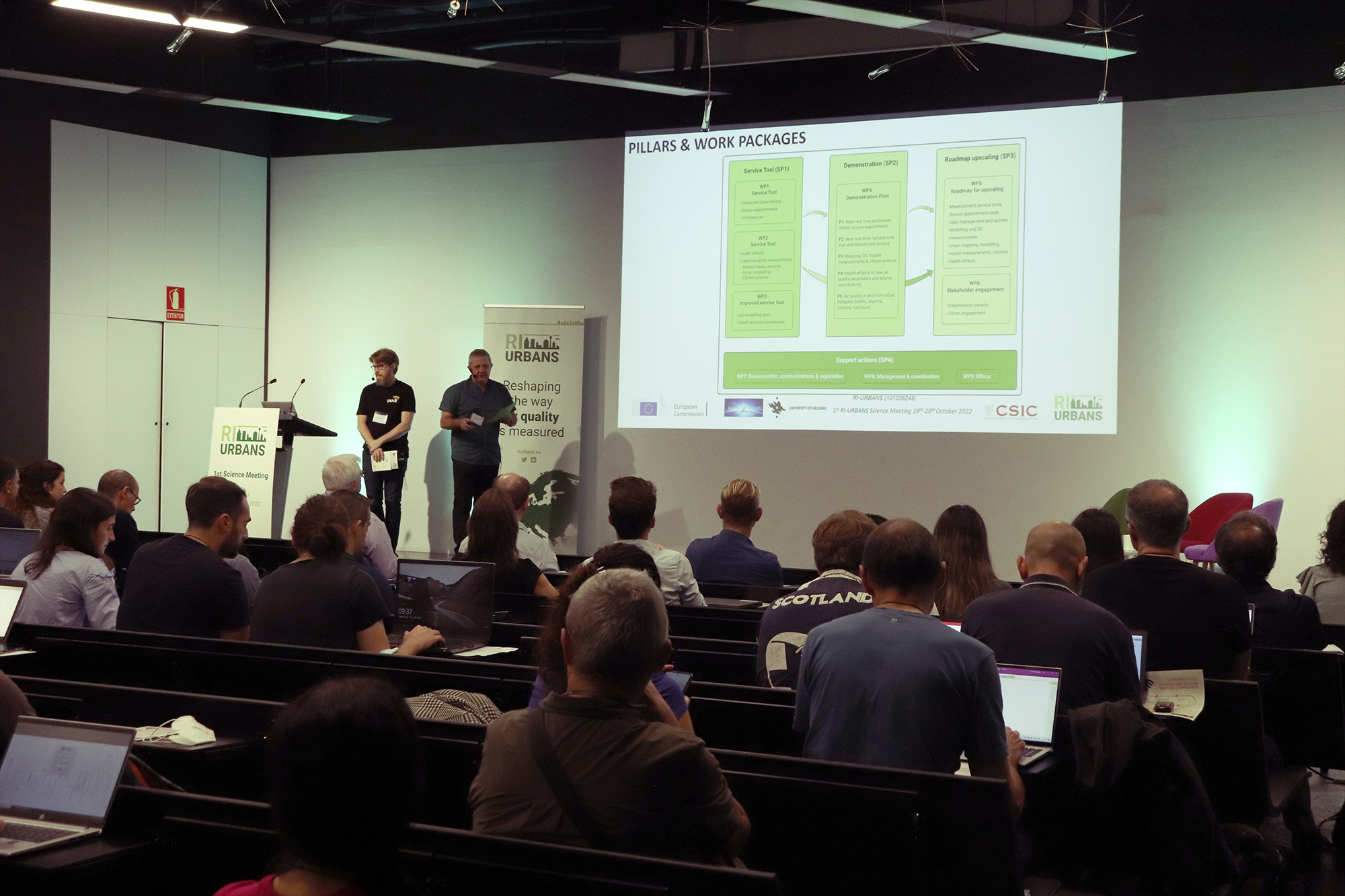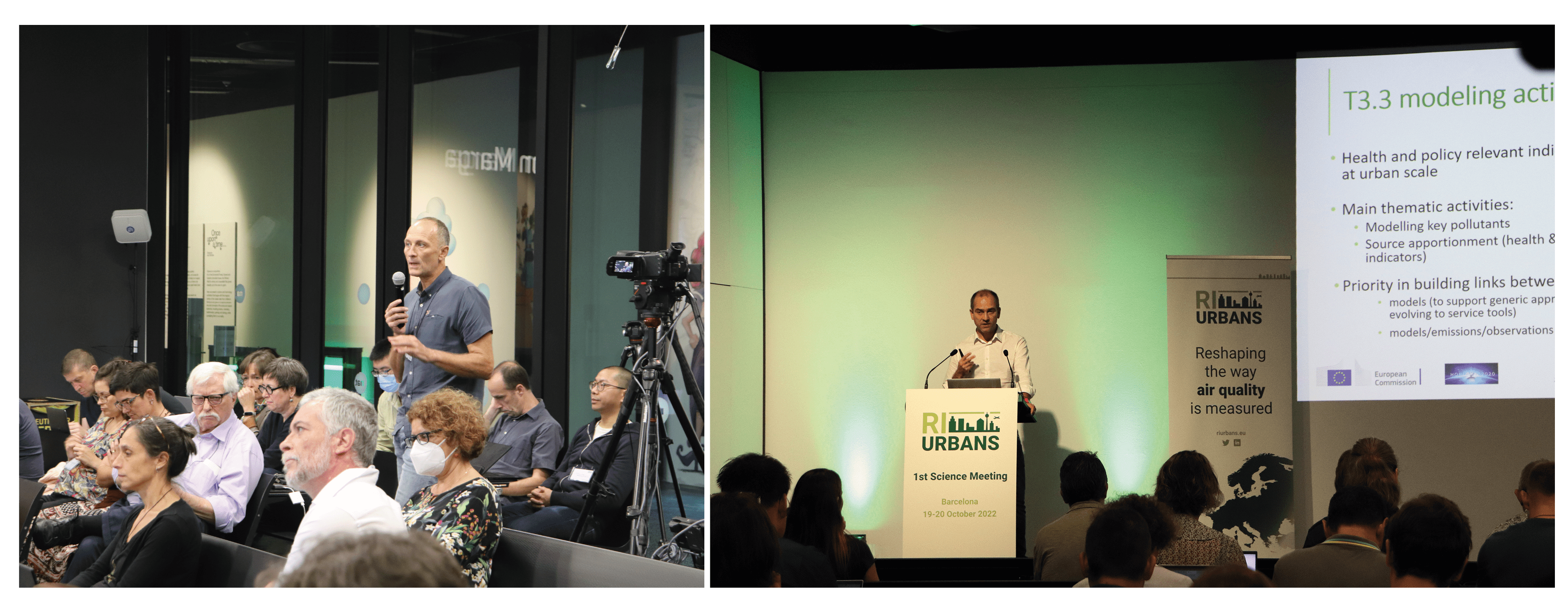
RI-URBANS celebrates its 1st Science Meeting in Barcelona updating on the progress of the project
- A total of 150 participants from 63 institutions gathers to inform about the ongoing work
- The project has achieved several milestones in data collection, pilot studies, and cooperation with other European research infrastructures
RI-URBANS participants met last week in the 1st Science Meeting of the project in Barcelona. A total of 84 onsite and 66 online participants from 63 institutions attended the meeting, together with representatives from the World Health Organization, European Commission, and other European research infrastructures.
“RI-URBANS is progressing well. The project is now obtaining results of great interest, especially in the compilation of data on ultrafine particles, black carbon, and chemical combustion of aerosols”, declares Xavier Querol, coordinator of the project and CSIC researcher.

RI-URBANS coordinators Tuukka Petäja and Xavier Querol, explaining the RI-URBANS project report. Source: Alicia Arroyo (CSIC)
During its first year, RI-URBANS has reached several milestones that were highlighted during the meeting:
“We have also obtained very relevant results in terms of regional and urban scale modeling of advanced air quality parameters”, declares Tuukka Petäjä, RI-URBANS coordinator and researcher at the University of Helsinki.

From left to right: Spyros Pandis (FORTH), Xavier Querol (CSIC) and Román Pérez Velasco (WHO); Tuukka Petäjä (UHEL) and Mar Viana (CSIC); Matine van Poppel (VITO), Stephan de Roode (Delft University of Technology) and Arnoud Apituley (KNMI). Source: Alicia Arroyo (CSIC)
The project is directly connected with ACTRIS (Aerosol, Clouds and Trace Gases Research Infrastructure) and ICOS (Integrated Carbon Observation System) in terms of the use of service tools, networking supersites, and data management, and a fluent dialogue is stablished with them.
Several challenges were also put forward during the meeting. One of them is achieving that air quality monitoring networks apply the service tools developed in RI-URBANS, most of them coming from ACTRIS.
Another challenge is to make the data flow smoothly from all air quality stations toward ACTRIS. RI-URBANS already compiled advanced measurements from many stations, but there are some left behind. Efforts should be made to make these harmonised and data public in ACTRIS-EBAS.

From left to right: Paolo Laj (ACTRIS) and Augustin Colette (INERIS). Source: Alicia Arroyo (CSIC)
The Agenda of the meeting is accessible in the following button:
The summary of the Scientific Meeting can be read in the corresponding Milestone 41 (M7.6):
Some of thee presentations from the 1st Science Meeting are freely accessible:
